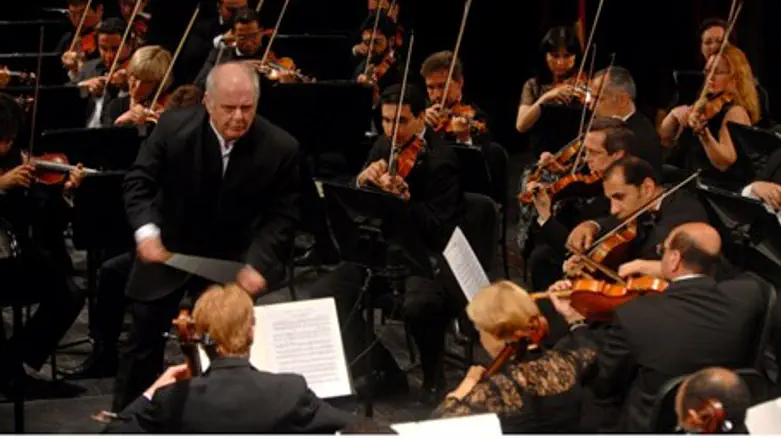
"Lost" music composed by Holocaust detainees came to life Tuesday at a concert in America, Robert MacPherson of the AFP news agency reports.
Nicholas Biniaz-Harris is a young American classical pianist who is more at home performing Bach, Beethoven and Rachmaninoff than the obscure works of Nazi concentration camp inmates.
But as the grandson of a Holocaust survivor, the 17-year-old Washingtonian felt a special attachment to the variations on a Polish patriotic theme that Leon Kaczmarek put together in Dachau during World War II.
On Tuesday, after just two weeks of rehersal, he sat down at a baby grand piano in an auditorium at the US State Department in Washington and played
Kaczmarek's composition to American ears for the first time.
"As a classically-trained pianist, you're always playing pieces that the audience or judges or teachers have heard a thousand times before," said the winner of this year's National Symphony Orchestra young soloists competition.
"But in this case, it's truly an original work, composed 70 years ago, that nobody has heard."
The pianist's grandmother was among the 1,200 Jews shielded from certain death by German industrialist Oskar Schindler.
His performance was the highlight of a multi-media "Lost Music of the Holocaust" forum at the State Department hosted by Ira Forman, the newly-appointed US special envoy to monitor and combat anti-Semitism.
In large part, the event was a salute to the ongoing work of Francesco Lotoro, an Italian pianist who has been doggedly tracking down every piece of music composed by Nazi prison-camp detainees.
He was unable to attend due to his mother's recent death, but participants were told of how Lotoro has already recorded 24 compact discs of Holocaust
music, out of 5,000 known concentration-camp compositions.
"Think of yourself in these horrific conditions -- my first tendency would be to lie down and give up," said Dahlan Robert Foah of the non-profit Creativity in Captivity group that works with Lotoro in the United States.
"But I think there is this driving human spirit which says, 'I want to show myself I am still alive, and I want to show others that I am still alive,'" he told AFP.
US Holocaust Memorial Museum music curator Bret Werb said Kaczmarek, who died in 1973 at the age of 70, endured two forced medical experiments during his five years of internment.
Yet he managed to oversee a 45-member German men's choir and composed enough music to fill three notebooks that now are part of the museum's
ever-growing archives.
"We continue to actively seek this kind of material," Werb told the State Department forum that included some elderly Holocaust survivors. "And much to
my surprise, we often find it."